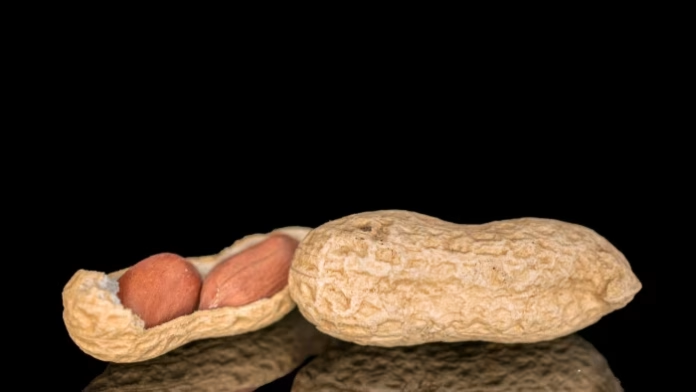Unlock the Editor’s Digest for free
Roula Khalaf, Editor of the FT, selects her favourite stories in this weekly newsletter.
Leading food allergies have dropped sharply in American children since parents have been urged to give them peanuts early in life, according to new research on a quiet revolution in combating potentially deadly dietary sensitivities.
The prevalence of common allergies fell 43 per cent for peanuts and more than one-third for all foods after US medical advice was updated a decade ago to recommend early exposure, a team from the Children’s Hospital of Philadelphia found.
The allergies studied are caused by foodstuffs binding to the antibody immunoglobulin E (IgE), triggering the release of chemicals that can cause symptoms of varying severity, including the potentially fatal anaphylaxis.
The results offer striking evidence of the life-saving impact of milestone 2015 research that showed early introduction to peanuts could help rather than harm by preventing the development of an adverse reaction to them.
“Everyone has been wondering whether these landmark public health interventions have had an impact on reducing rates of IgE-mediated food allergies in the United States,” said Stanislaw Gabryszewski, first author of the paper published in the journal Pediatrics on Monday. “We now have data that suggest that the effect . . . is occurring.”
The latest research explores the impact of changes to dietary advice introduced after the transformative 2015 study, known as Leap, on infants with severe eczema or egg allergies. It found children who ate peanuts were at a much lower risk for developing an allergy to the legumes than their peers who did not. Further research suggested the protective effect lasted beyond childhood.
US guidelines launched by leading medical organisations in 2015 and expanded in 2017 recommended early peanut exposure for infants deemed at moderate or high risk of developing an allergy. The advice was expanded in 2021 to recommend peanut, egg and other leading food allergens be introduced to all children of between four and six months who had no history of prior adverse reaction.
The Philadelphia researchers used electronic health paediatric data to compare rates of food allergy diagnosis from before the 2015 guidelines’ publication with those after the 2017 advice was issued. They found that rates of IgE-mediated peanut allergy fell from 0.79 per cent to 0.45 per cent, while those for any IgE-mediated food allergy dropped from 1.46 per cent to 0.93 per cent.
This means that for every 200 children exposed to the food allergens early in life, one would have been prevented from developing allergies, the authors estimated. The results raised the possibility the rates could be cut further, they added.
“Future studies could potentially explore specific feeding practices that help us better understand the timing, frequency and dose of foods that optimise protection against food allergies,” said David Hill, senior study author and an attending physician at the Pennsylvania hospital.
Global food allergy rates are not precisely known, although some estimates run into hundreds of millions of people worldwide. Scientists now think early exposure to food allergens such as milk, fish and gluten-containing cereals can help by training the immune system to tolerate them.
While the Philadelphia paper is a so-called observational study on pre-existing data rather than a randomised controlled trial run by the researchers, scientists not involved in the work hailed the results as significant.
“This is the first evidence of a behavioural change in infant feeding practices resulting in reduction in peanut allergy at a population level,” said Hasan Arshad, professor in allergy and clinical immunology at the UK’s Southampton university.
Gideon Lack, who led the crucial 2015 Leap study, said the Philadelphia results showed the impact of the “complete reversal” in allergenic food consumption guidance over the past decade.
“The findings demonstrate how a simple change in health policy can have a profound effect in preventing allergic diseases,” said Lack, professor of paediatric allergy at King’s College London. “It shows we have the potential to further reduce — and perhaps even eventually eradicate — the burden of peanut and other food allergies in children.”















